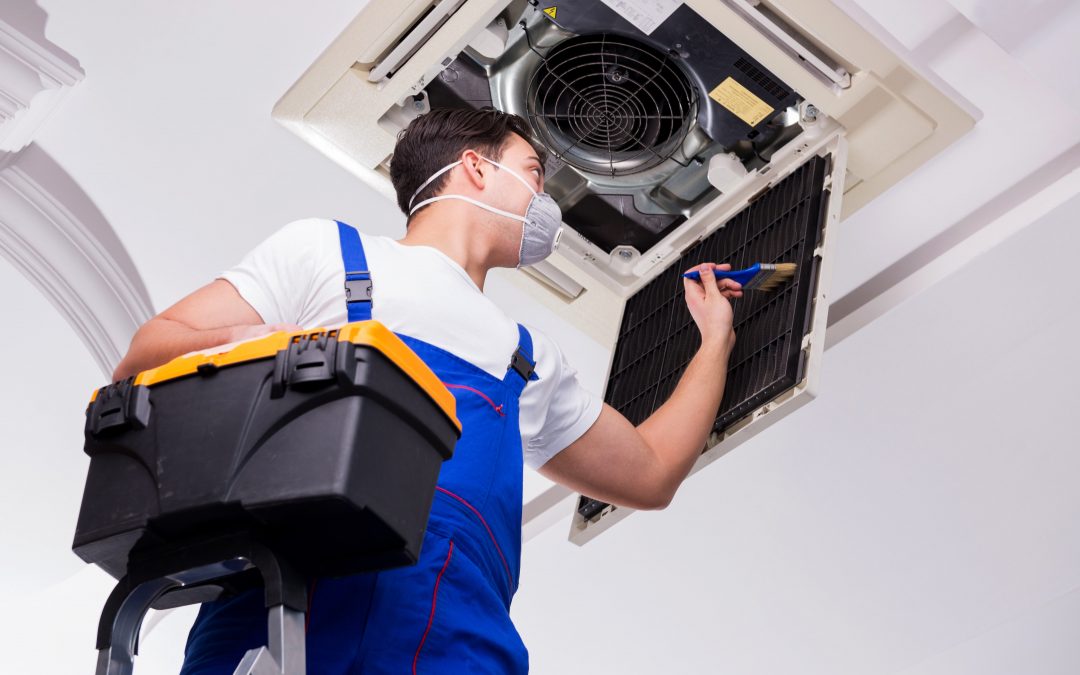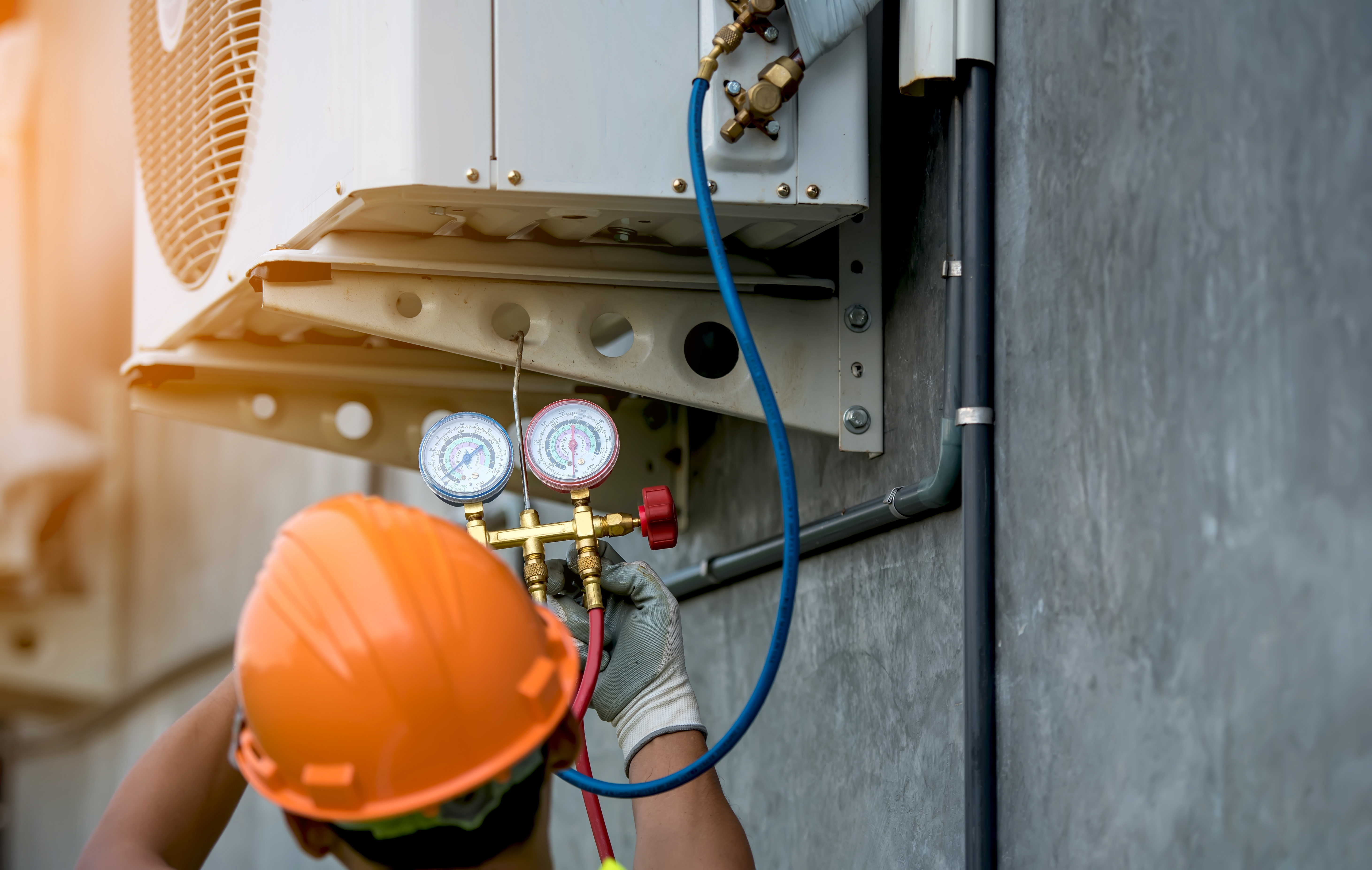Why ac unit replacement becomes the smartest move
Wiki Article
The Value of Cooling And Heating Understanding: Uncovering Sources Of Air Conditioner Issues for Home Owners
Home owners usually neglect the value of comprehending their HVAC systems. Acknowledging usual indications of a/c problems can bring about prompt interventions. Problems like not enough air conditioning or uncommon noises are not simply inconveniences; they can show deeper worries. By checking out the origin causes of these issues, home owners can boost system efficiency and prolong its life expectancy. What are the most prevalent problems that can occur, and how can they be successfully resolved?Typical Indications of Air Conditioning Issues
Exactly how can home owners determine concerns with their air conditioning systems before they escalate? Recognizing typical indicators of AC problems is essential for timely upkeep. One widespread indication is inadequate cooling; if the a/c system stops working to decrease the interior temperature, it may signal underlying problems. Unusual sounds, such as grinding or hissing, can also indicate mechanical failures or loosened elements - Fix broken Air conditioner. Additionally, property owners should be cautious of odd odors originating from the system, which might suggest mold development or electrical issues. Constant cycling on and off, called short cycling, can suggest thermostat concerns or refrigerant leakages. A boost in energy expenses without a corresponding increase in use might aim to inefficiency. By remaining sharp to these warning indications, home owners can prevent more substantial concerns and expensive repairs, ensuring their air conditioning systems run successfully throughout the warmer months
Recognizing Refrigerant Issues
Refrigerant issues can significantly influence the effectiveness of a HVAC system. Homeowners should be aware of the indicators of reduced refrigerant degrees and the relevance of identifying refrigerant leakages. Addressing these issues quickly can prevent further damages to the system and assurance peak cooling performance.Reduced Refrigerant Levels
A common problem that house owners might run into with their heating and cooling systems is low refrigerant degrees, which can considerably influence the system's performance and efficiency. Refrigerant is vital for the cooling process, taking in warm from indoor air and releasing it outside. When levels drop, the cooling unit has a hard time to cool down the space properly, bring about enhanced power usage and possible system stress. Signs and symptoms of low refrigerant include inadequate air conditioning, longer run times, and ice formation on the evaporator coils. Home owners might additionally discover uncommon sounds as the compressor works harder to make up for the shortage. It is crucial for property owners to recognize the value of keeping appropriate cooling agent levels to guarantee peak a/c efficiency and longevity.Refrigerant Leaks Discovery
Where might a homeowner begin when confronted with the opportunity of cooling agent leaks in their cooling and heating system? The primary step entails keeping an eye on the system's efficiency. Indications such as minimized cooling down effectiveness, ice development on coils, or hissing noises might suggest a refrigerant leak. House owners ought to additionally look for noticeable indicators of oil deposit, usually an indicator of a leak. Using a refrigerant leak detector can give more accurate recognition. If uncertainties linger, getting in touch with an accredited heating and cooling technician is vital, as they possess the proficiency and tools to situate leaks properly. Trigger detection and repair service of refrigerant leakages not only enhance system efficiency but also prevent potential environmental injury, making it a crucial element of HVAC maintenance.Electric Failures and Their Influence
Electric failures can substantially impact a/c systems, particularly with problems like circuit breaker breakdowns and faulty electrical wiring. These problems not only interrupt the system's performance yet can likewise bring about expensive repairs and security threats. Recognizing the ramifications of such failings is crucial for home owners to preserve an effective and secure a/c environment.Breaker Issues
Exactly how can circuit breaker problems impact the efficiency of a heating and cooling system? Circuit breakers act as critical safety gadgets that take care of electrical circulation to HVAC devices. If a breaker trips regularly, it interferes with power supply, causing irregular home heating or air conditioning. This can cause significant strain on the system, leading to inefficient procedure and potential damages to parts. Homeowners may discover boosted energy costs because of the heating and cooling system's struggle to keep desired temperatures. Additionally, repeated disturbances from tripped breakers can shorten the lifespan of the AC system, calling for pricey fixings or replacements. Regular maintenance of circuit breakers is critical, as it assures a steady power supply, eventually improving the total efficiency of the HVAC system.Faulty Wiring Outcome
Regularly overlooked, malfunctioning circuitry can have dire repercussions for cooling and heating systems. Electrical wiring issues may bring about brief circuits, resulting in constant failures and increased repair work costs. On top of that, incorrect circuitry can create inefficient power use, resulting in higher utility bills and pressure on the system. In serious cases, malfunctioning circuitry can trigger electric fires, presenting a significant safety danger to home owners. These electrical failures can damage A/c elements, resulting in expensive replacements or considerable repair services. Property owners should focus on regular inspections by certified professionals to determine and rectify electrical wiring troubles before they rise. Recognizing the ramifications of malfunctioning circuitry can assist ensure the durability and security of a/c systems, inevitably securing both the home and its occupants.Clogged Filters and Their Consequences
While many property owners might neglect the significance of regular filter upkeep, stopped up filters can lead to significant effects for a/c systems. When filters come to be obstructed with dust, dust, and particles, airflow is limited. This decrease in airflow compels the system to work harder, leading to boosted power usage and possibly higher utility expenses. Over time, this pressure can cause damage on elements, leading to premature system failing.In addition, blocked filters can endanger interior air top quality. Pollutants and irritants might flow throughout the home, worsening respiratory system issues and allergies for owners. Moreover, insufficient air movement can trigger the evaporator coil to ice up, leading to expensive fixings and inefficient air conditioning performance. Regularly altering or cleaning up filters is a simple yet necessary upkeep job that can help guarantee the longevity and effectiveness of HVAC systems, inevitably profiting both the homeowner's convenience and their financial resources.

Thermostat Malfunctions Discussed
What happens when a thermostat malfunctions can considerably influence both comfort and energy effectiveness in AC repairman a home (AC repairman). A malfunctioning thermostat might fail to properly review the temperature, leading to overcooling or insufficient air conditioning. This discrepancy can create pain for passengers and result in higher energy bills, as the HVAC system works more challenging than essentialCommon issues include dead batteries, which can provide electronic thermostats faulty, and loosened circuitry that interferes with communication in between the thermostat and the a/c unit. Additionally, outdated or improperly calibrated thermostats may not react correctly to temperature adjustments, further worsening power ineffectiveness.
Property owners must be vigilant for indicators of breakdown, such as irregular temperatures or unexpected power prices. Routine checks and understanding of the thermostat's performance can assist identify issues early, making certain peak performance of the cooling and heating system. Dealing with thermostat issues without delay is crucial for preserving a comfortable living atmosphere and managing power usage efficiently.
The Role of Routine Upkeep
Routine upkeep plays an essential function in guaranteeing the longevity and performance of HVAC systems. Property owners who prioritize regular checks can prevent minor concerns from escalating right into pricey repair work. Routine upkeep usually consists of jobs such as cleansing filters, inspecting ductwork, and checking cooling agent levels. These activities aid preserve ideal air flow and system efficiency, minimizing power usage.A well-maintained Heating and cooling system runs much more effectively, providing constant comfort throughout the home. Normal tune-ups can also extend the life-span of the unit, bring about significant cost savings over time. Property owners are motivated to schedule professional inspections a minimum of annually to recognize potential problems early.
Furthermore, lots of makers require regular upkeep to copyright service warranties, making this practice not just advantageous yet commonly required. On the whole, understanding the importance of routine upkeep encourages property owners to protect their heating and cooling systems against unforeseen failures and boost their financial investment in home convenience.
Frequently Asked Concerns
Just How Can I Improve My A/c's Power Performance?
Improving an a/c's energy effectiveness involves routine maintenance, cleaning or replacing filters, securing ductwork, guaranteeing proper insulation, using programmable thermostats, and organizing specialist assessments to recognize and rectify possible issues affecting performance.
What Is the Life expectancy of a Normal Cooling Unit?
A regular air conditioning device has a life-span of 15 to 20 years, relying on upkeep, usage, and environmental elements. Normal maintenance can greatly extend its functional life and enhance overall efficiency.
When Should I Change My Cooling System?
A cooling system should normally be replaced every 10 to 15 years. Signs for replacement include constant fixings, rising power costs, and insufficient cooling, suggesting that an upgrade might be extra cost-efficient and reliable.Can I Troubleshoot A/c Troubles Myself?
Yes, individuals can fix a/c troubles themselves by checking filters, making sure power supply, and checking for noticeable problems (HVAC company). Complicated problems usually need specialist help for accurate diagnosis and risk-free repair service, making sure optimal system performance.
Just how Do I Select a Dependable HVAC Specialist?

To select a trustworthy a/c professional, one must look for recommendations, examine online reviews, verify licenses and insurance policy, analyze experience, and demand in-depth estimates to assure high quality solution and fair prices prior to choosing.
Final thought
To summarize, a solid understanding of cooling and heating systems enables home owners to properly identify and deal with common cooling concerns. Identifying signs such as insufficient air conditioning or increasing energy expenses enables for timely treatments, which can substantially enhance system performance and durability. By remaining informed regarding possible troubles like cooling agent leakages, electric failures, and clogged up filters, house owners can take positive measures to maintain their systems, eventually making certain convenience and advertising a healthier living environment. Regular maintenance remains vital to this endeavor.Report this wiki page